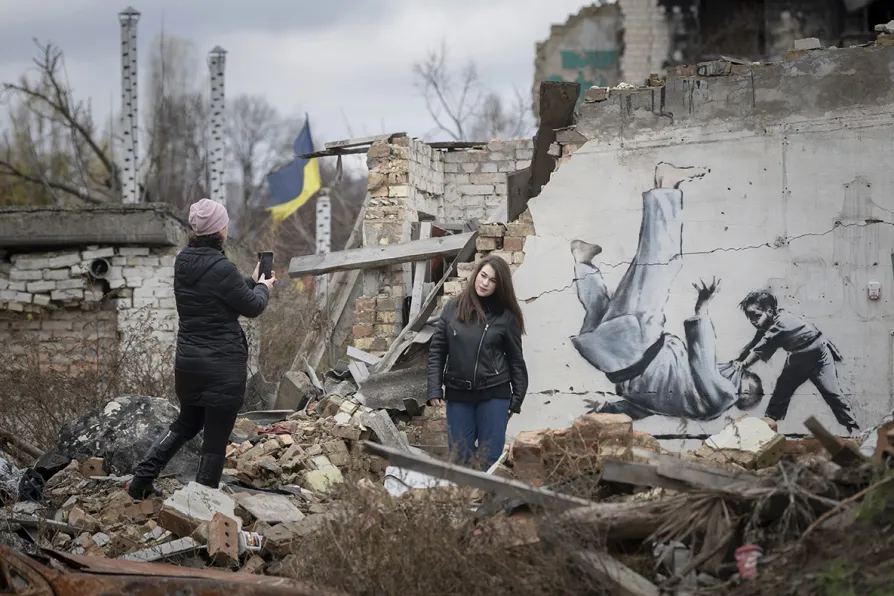As tens of thousands return to the streets for the first national Palestine march of 2026, this movement refuses to be sidelined or silenced, says PETER LEARY

 Women take a picture with an artwork on a building destroyed by fighting in Borodyanka, Kyiv region, Ukraine, Sunday, November 13, 2022. The painting appears to have been made by British street artist Banksy, who confirmed on his Instagram account that he made another mural in the village that depicts a gymnast
Women take a picture with an artwork on a building destroyed by fighting in Borodyanka, Kyiv region, Ukraine, Sunday, November 13, 2022. The painting appears to have been made by British street artist Banksy, who confirmed on his Instagram account that he made another mural in the village that depicts a gymnast
WITH the city of Kherson in southern Ukraine now back in Ukrainian hands, there is no longer any hiding place for Putin or his general staff when it comes to the disastrous state of Russia’s military campaign after nine months.
It has revealed the Russian military machine to be substandard on land, at sea and in the air, dispelling the illusion of superpower status when it comes to its conventional armed forces.
Whether the ill-fated attempt to mount a lightning strike and circle Kiev at the outset of the conflict, resulting in significant losses of men and materiel; whether the sinking of the Moskva, flagship of the much-heralded Russian Black Sea Fleet in April; whether the rout suffered by Russian forces in the north-east around Kharkiv in September, losing thousands of square kilometres of territory in a matter of a weeks and leaving behind intact tonnes of equipment in the process; or whether now the grievous (from a Russian perspective) loss of Kherson, the only regional capital to have fallen under Russian control; all of it will haunt the Kremlin for years to come — and justifiably so.

Washington plays innocent bystander while pouring weapons and intelligence into Ukraine, just as it enables the Gaza genocide — but every US escalation leaves Ukraine weaker than the neutrality deal rejected in 2022, argue MEDEA BENJAMIN and NICOLAS JS DAVIES

As Britain marks 80 years since defeating fascism, it finds itself in a proxy war against Russia over Ukraine — DANIEL POWELL examines Churchill’s secret plan to attack our Soviet allies in 1945 and traces how Nato expansion, a Western-backed coup and neo-nazi activism contributed to todays' devastating conflict












